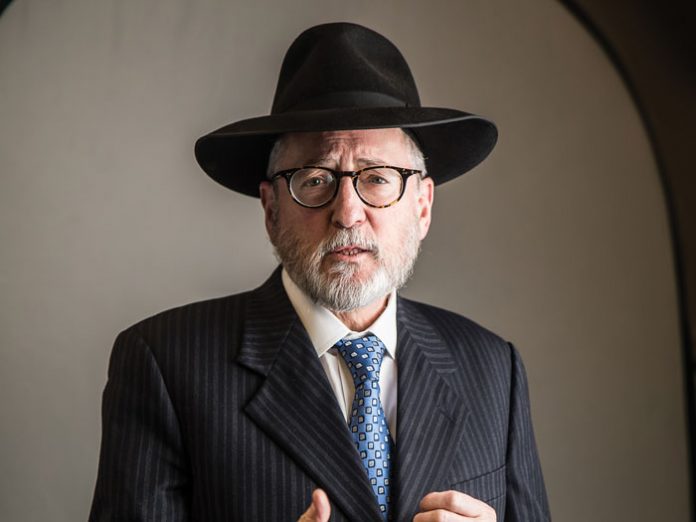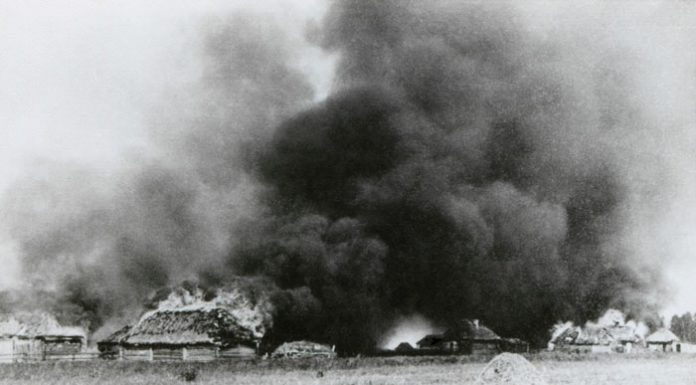“It was the eighth day of Chanukah. I was sitting next to my phone and my heart was pounding. I’d been told to expect a call that day from the White House. All of a sudden the phone rang and I saw that it was a 202 [Washington, DC] area code. I picked it up and said hello, and the man on the other end said, ‘This is Chris Grieco, deputy White House counsel. Are you Sholom Rubashkin’s attorney?’ ‘Yes, I am.’ ‘I’m calling to inform you that a few minutes ago the President of the United States signed a commutation letter, effective immediately with all deliberate speed. The papers are being processed right now. It has to go to the DOJ [Department of Justice] and the BOP [Bureau of Prisons], but I’m calling to put you on notice that you’ll need to be ready to send someone to pick him up and bring him home. However, you can’t tell anyone because the White House wants to announce it. It’s a very important event as far as the White House is concerned, and the president wants us to be the one to announce it, but we haven’t finished the press release yet.’ ‘Thank you so much,’ I replied. ‘G-d bless President Trump, and G-d bless you.’ And I meant it.
“When he said that I couldn’t tell anyone, I asked him if that included Sholom Mordechai’s wife, Leah. ‘Anyone!’ he reiterated. So I asked him if he could send me a copy of the commutation, and he promised to send it along with the press release. Then I thanked him again and we hung up.
“Well, there I was. I’d just received the most exciting news of my entire life, but I couldn’t tell anyone. So I started jumping up and down and dancing with Hakadosh Baruch Hu, thanking Hashem over and over. It was just such an amazing neis. After about five minutes I got a little tired and sat down, wondering what I should do for the next hour. So I took out a Tehillim and started saying the same kapitlach I always said with Sholom Mordechai—20, 23, 116, 117, 55 and 59—as well as some others. Baruch Hashem, Hakadosh Baruch Hu was kind to me and 30 minutes later I got an email saying that the press release wasn’t ready yet, ‘but here’s the commutation and the phone number for the warden’s office. Please call the warden to arrange the pickup, and you are now permitted to tell one person after you speak with the warden: the person who will pick him up.’
“I called the warden’s office at the Otisville prison, but the person who answered the phone said that she wasn’t available. So I told him my name and added that the White House had instructed me to call the warden about Sholom Rubashkin. ‘Yes,’ he said, ‘I know that something is going on. What would you like to discuss with the warden?’ ‘I’m so sorry,’ I replied, ‘but I’m under strict orders from the White House that the only person I’m permitted to speak to is the warden.’ He was very nice and said he’d try to reach her.
“Around two minutes later the warden called me back and said that she’d received the letter of commutation from the president. ‘And I want you to know that we removed Mr. Rubashkin from his cell within ten minutes of receiving it. In fact, he’s sitting here right now. Would you like to speak with him?’ What I was thinking was Are you kidding me? Of course I’d like to speak with him! He’s a free man! But all I said aloud was, ‘Yes, that would be great. Please put him on the phone.’
“She put Sholom Mordechai on the phone and he said, ‘I made a Zos Chanukah seudah while we were in lockdown’—there are several prisoner counts every day, during which prisoners have to be in their cells—‘and I was eating matzah and tuna fish when suddenly the door to my cell opened and the guard announced, “Rubashkin, get out!” I didn’t know what he meant. I asked him if it was a shakedown [a random inspection] and he said, “No, just get out.” I tried asking him where we were going, but he wouldn’t tell me.’
“He then described how he’d grabbed his tallis and tefillin, and as you probably know by now, his copy of Chovos Halevavos, which he’d just put into his tallis bag. His first thought was that he was being transferred to another facility, because it’s very common for prisoners to be moved around the prison system. And they don’t give you any advance warning; they just tell the person to get out, and the next thing he knows he’s on a bus. No one would say anything to him. When they got to the warden’s office the warden said, ‘Mr. Rubashkin, we just received a signed commutation from the president. You’re a free man. You’re free to go home.’ That’s how he found out.
“‘Sholom Mordechai,’ I told him, ‘there are no words to describe how much I love you, and there are no words to describe my hakaras hatov to Hashem for allowing me to be involved in this. Now I’m going to call your wife.’ He said, ‘Please tell her to drive carefully.’
“When I called Leah I thought she was home, so when the warden asked me how long it would take her to get there I said that she lived around 45 minutes away. But when I reached her she was driving over the George Washington Bridge on her way home from Brooklyn. ‘Don’t go home,’ I told her, ‘just go straight to Otisville. Sholom Mordechai is waiting in the warden’s office for you to pick him up.’ And then her phone died!
“I called the prison back and spoke to Sholom Mordechai a few more times. At one point he said, ‘Where is she already? She’s waited eight years for this! But I guess I can wait another few minutes.’ They’re both such tzaddikim. We thought that we would have some advance notice and there would be a whole delegation to pick him up. In fact, my son was going to go as my shaliach, because I had to stay in LA to take care of a few things.”
“Was Zos Chanukah the first time you were told to be ready for a call?” I ask my exceptional visitor, who has dedicated four and a half years of his life to get the besurah that Sholom Mordecahi was free.
“No. There were four times when I was told to expect a call. The first time was a week before Rosh Hashanah and then the week before Sukkos, and each time something happened. We always had a good feeling that it was going to happen, but frankly, until it’s done, it’s not done.
“Then, on the day before Erev Chanukah, Alan Dershowitz told me to make sure to be in my office the next day at 10:30 a.m. Pacific time [1:30 in Washington] because the president was scheduled to sign the commutation and the White House counsel’s office would be calling me. The waiting seemed interminable. At 12:00 Alan called to ask if I’d heard anything, but there was no word. Then I found out that it was off! I think there was some kind of issue, which is when we needed one more makeh b’patish, as Rabbi Zvi Boyarsky says, and Yechiel Eckstein took care of it for us.
“It was so stressful that the children asked me not to give their mother daily updates during Chanukah.





















